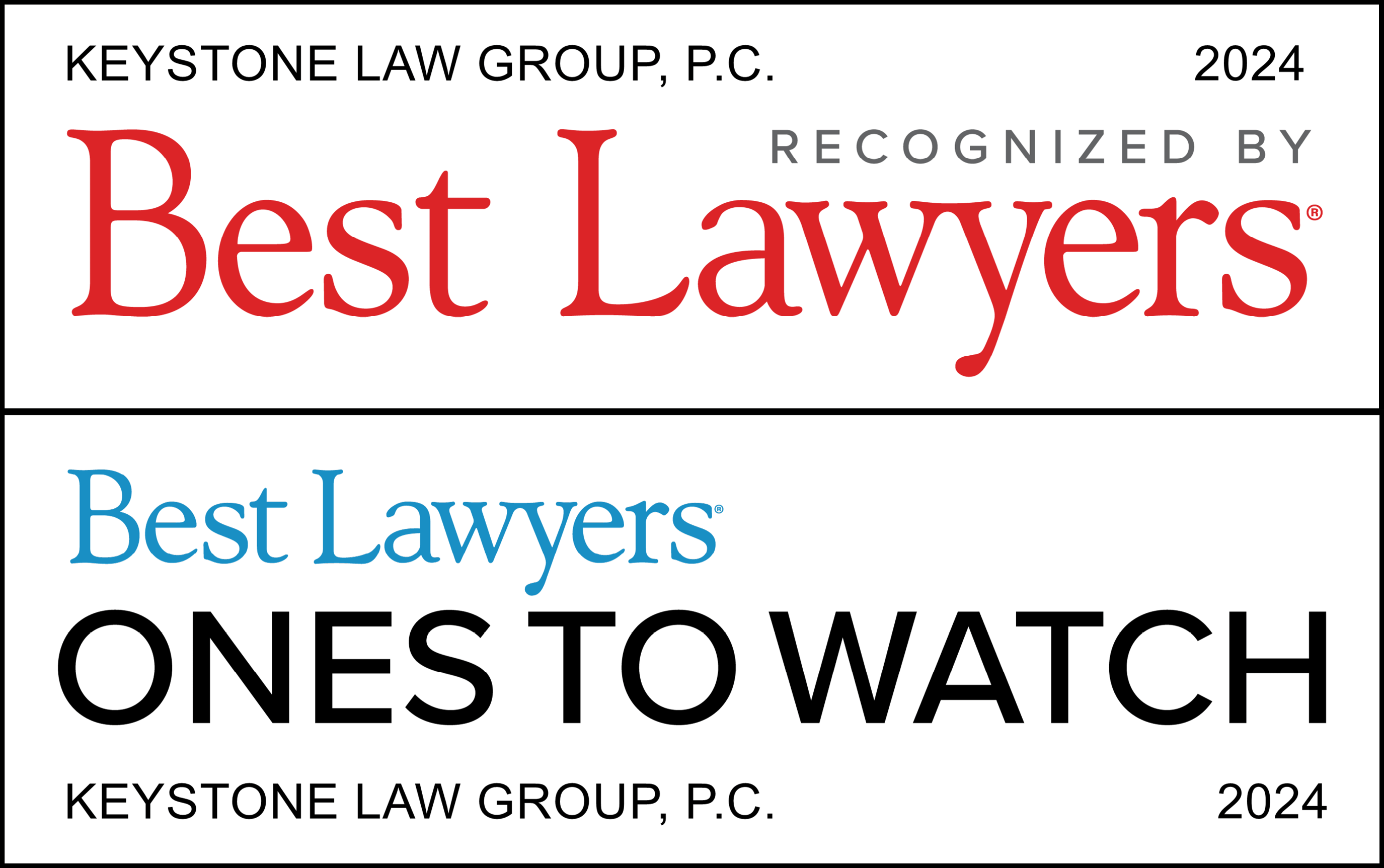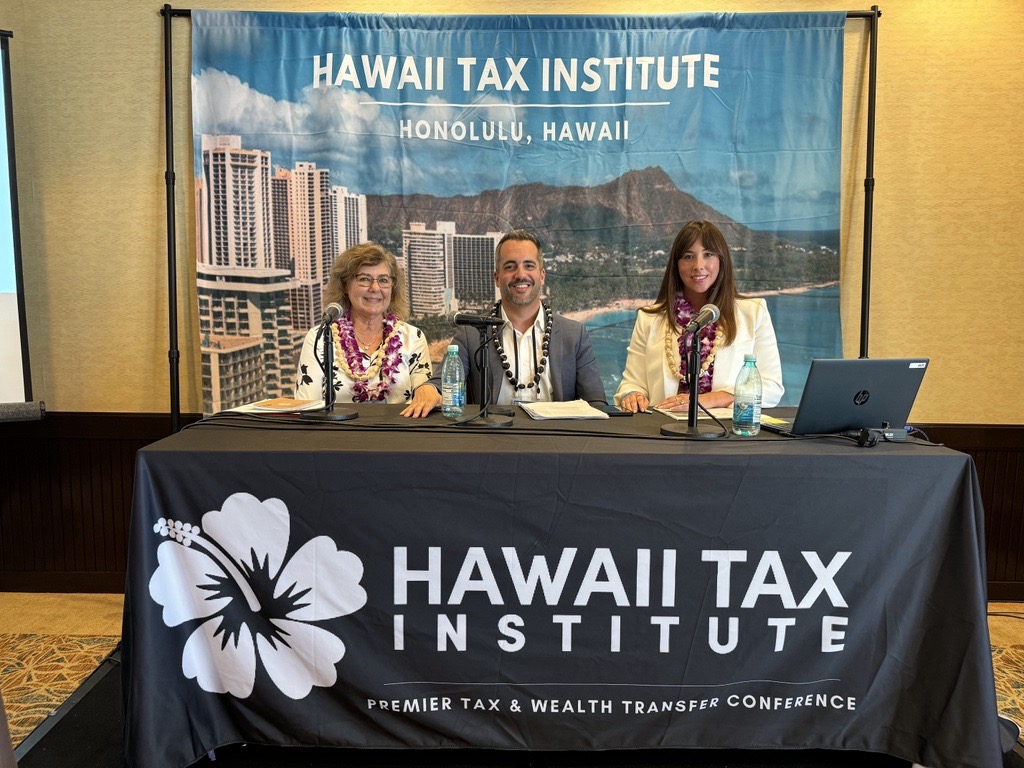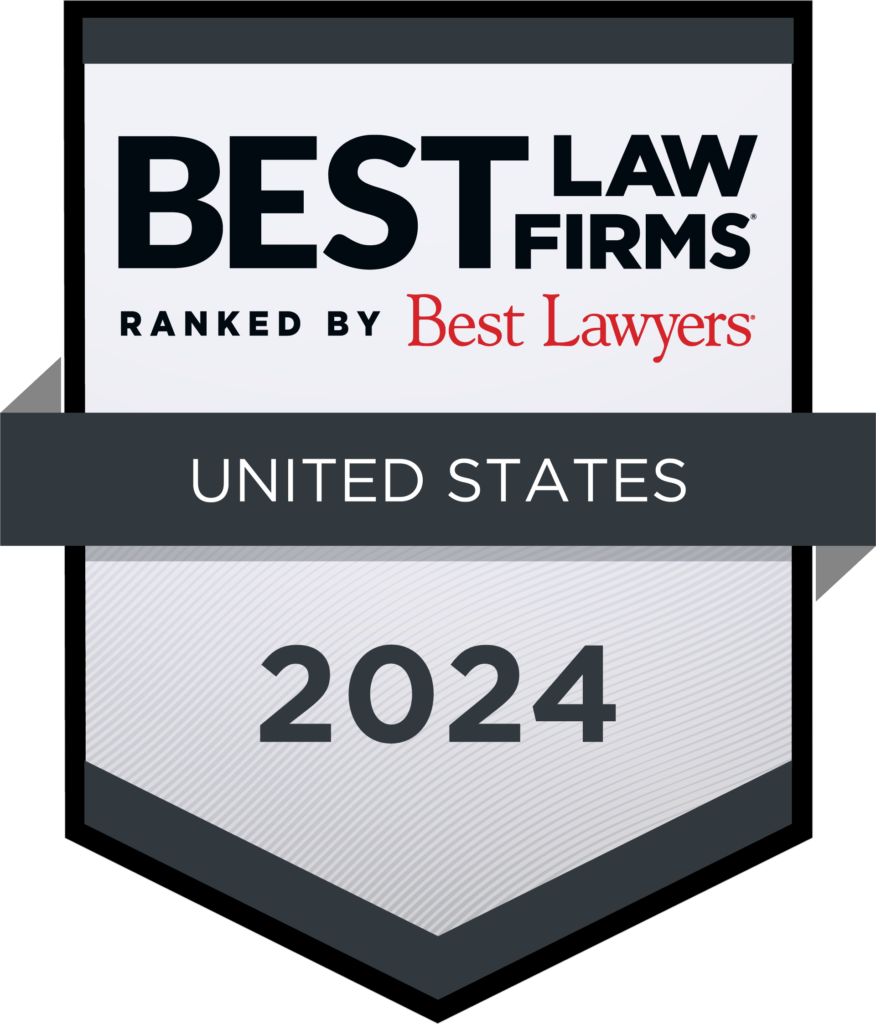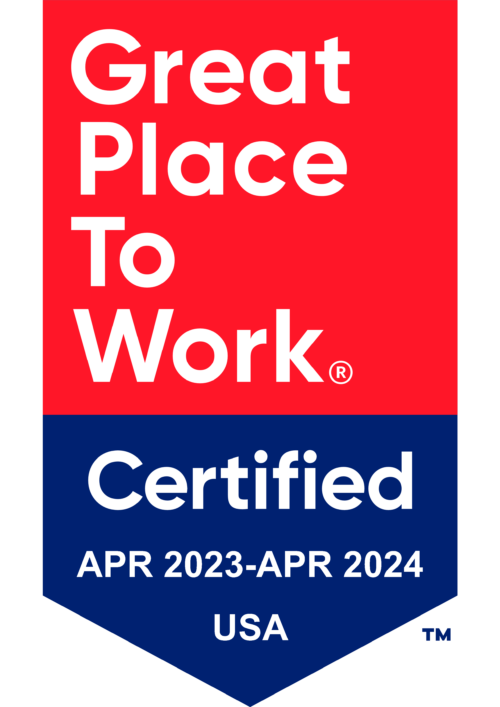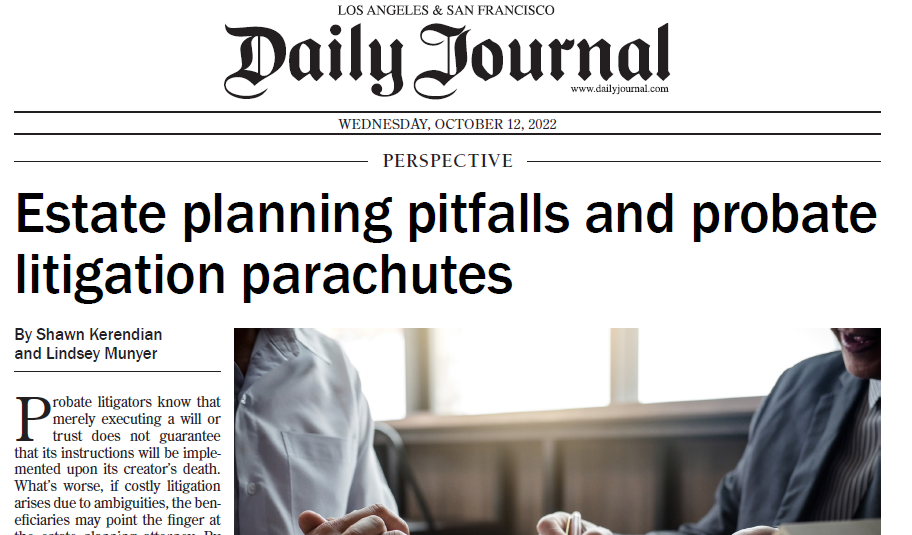
Probate practitioners know all too well that merely executing a will or trust does not guarantee that the instructions laid out in the document will be carried out. Furthermore, if there are ambiguities in the document that result in litigation, beneficiaries may resort to blaming the estate planning attorney who helped draft it. Luckily, by being mindful of certain estate planning provisions, estate planners can significantly reduce the likelihood of disputes arising after the will or trust creator’s death.
Because Keystone focuses exclusively on probate litigation and administration matters, our attorneys have a unique perspective on estate planning. Partner Lindsey Munyer shared her expertise on the five common pitfalls to avoid in estate planning by presenting virtually to the Beverly Hills Bar Association in October 2022, after which she and Managing Partner Shawn Kerendian co-authored a column on the same topic for the Daily Journal, one of the state’s leading legal publications. Approximately 150 professionals tuned in to Lindsey’s presentation, of which around 20 attendees asked follow-up questions.
For a full copy of the Daily Journal article, click here. Otherwise, the main takeaways from the Beverly Hills Bar Association presentation and the Daily Journal column are:
- Modifying/Revoking a Trust: It is advisable to specify an exclusive method of modification or revocation of a trust to prevent the more lenient statutory method from being used.
- Determining Incapacity: Instead of merely requiring letters from two of the settlor’s physicians without any temporal parameters to prove the settlor’s incapacity, it is recommended that the letters be required within a short period of time relative to the determination of incapacity, and either from a physician who has a history of treating the settlor or a physician who specializes in capacity evaluations.
- Characterization of Community/Separate Property: It is crucial to be meticulous when characterizing or transmuting community property and separate property in estate planning documents, as an incorrect characterization or transmutation of property could end up requiring a tracing of assets, which can be a costly process.
- Omitting No-Contest Clauses from Amendments: No-contest clauses can effectively squash groundless claims related to estate-planning documents; however, they only work if they are included as a provision of the document being contested. For example, if a person’s trust contains a no-contest clause, but a later amendment to that trust does not contain a no-contest clause, it’s unlikely the original no-contest clause can be enforced against a contest solely to the amendment.
- Leveling the Playing Field in Beneficiary-Trustee Litigation: It’s unfortunate that when a trustee breaches their duties, beneficiaries often must cover the cost of bringing a claim on their own, which places the trustee, who can use trust funds for their defense, at an advantage. To remedy this inequality, estate planners should consider including trust provisions that call for the trustee to advance reasonable expenses to beneficiaries (chargeable against their shares of the trust), and/or for the trust to reimburse beneficiaries who successfully bring a claim for reasonable attorney’s fees and costs incurred as a result of litigation.
By avoiding these common estate planning mistakes, estate planners can not only shield themselves from litigation, but also help their clients to build solid estate plans.


